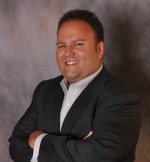Should I buy an investment property?
I just graduated college, and I have a good chunk of money that I could use for a down payment on a condo. Is there a way I could buy the condo and have a renter pay my mortgage for me by charging them rent? In the meantime, can I just rent out another apartment for myself to live in while my renter pays off my condo mortgage? What are the steps to being able to do this? The condo is pretty close to UW, so I don't think I will ever have a problem renting it out. by Husky85@mail.com from Seattle, Washington. May 29th 2013
 Tim Howard (TimHoward)
Tim Howard (TimHoward)
#75 ranked lender in Ohio - 52 contributions
Trying looking at a 2-4 unit property. If you reside in one of the units it can be considered as owner occupied. Owner occupied loan scenarios are far better than investment properties as you won't need as much down and the rates are significantly better. The other units should cover most if not all of your expenses and you can live rent free all the while you're accumulating equity! Anything above 4 units is considered commercial and would be a whole different process all together. Good luck!
 Carlo Sanchez (MortgageLendingPro)
Carlo Sanchez (MortgageLendingPro)
#0 ranked lender in Utah - 1,163 contributions
GO Dawgs!! Fellow Husky myself!! When you purchase a home the loan type will be dependant on whether you will live in the property to make a primary residence or if it will just be a rental property. If you buy it an plan on living in it and then get a roommate to help pay the mortgage then you can buy it a primary residence and that opens up FHA options as well along with less down payment requirements. If you purchase it as an investment property then you'll need a minimum 20% down, better rate with 25% down, and need higher fico scores. You mention about buying a condo but If you were to buy a property that is near the GreenLake, Wallingford, or Ravenna area's there are Duplexes and tri-plex'es in those areas and if you were to buy one of those and move into one of the units you it would still be considered a Primary Residence and you can use the rental incomes on the other units to qualify. I'm not licensed in Washington but there are some pretty active loan officers on this website that can help you and I'm sure some will answer your question here. If you have any other question you can PM me and I'll answer them for ANY fellow Husky. again GO DAWGS and good luck!!
 Josh Lund (Josh_Lund)
Josh Lund (Josh_Lund)
#44 ranked lender in Minnesota - 113 contributions
Great question! What you're looking at doing is buying an investment property. Most lenders usually require 25% down for a condo. With today's' market it's a great investment. You should sit down with you local lender.
 Joe LaVallie (joe.lavallie)
Joe LaVallie (joe.lavallie)
#66 ranked lender in Washington - 125 contributions
I agree with everything Mortgagelenderpro stated. I am licensed in Washington and would be able to answer any questions that you may have. Please feel free to call me at 206-743-4722
 Michael Zimmerman (MichaelZimmerman)
Michael Zimmerman (MichaelZimmerman)
#60 ranked lender in Virginia - 36 contributions
I agree with the first comment stated
 Bryan Horn (bryanhorn)
Bryan Horn (bryanhorn)
#876 ranked lender in California - 19 contributions
why not buy a 2 bed room condo and rent out the 2nd room? Or buy a duplex and live in the other side rather than rent...To qualify you will need to be working a full time job and your pre-tax income must be more than double of your total monthly debts.
 Jim Bombastic (Jim.bombastic)
Jim Bombastic (Jim.bombastic)
#109 ranked lender in New York - 2 contributions
^ I agree with Tim. It seems like the best way to make a good ROI.
 Dave Metsker (DaveMetsker)
Dave Metsker (DaveMetsker)
#35 ranked lender in Oregon - 2,318 contributions
A 2 to 4 unit property, where you live in one unit, will give you the best of both worlds. You can get good FHA financing, tax benefits, and no HOA dues. Properly done, you should be able to live rent-free. After that, consider another 4-unit property, when you have 25% down payment available, and the necessary landlording skills.
 Michael Patterson (MichaelPatterson)
Michael Patterson (MichaelPatterson)
#51 ranked lender in Washington - 73 contributions
Condos have many moving parts, but proximity to the U can be a good investment. First, determining if the Condo Association meets Fannie Mae's Condo Project Requirements is important. A couple points on this is no more than 50% of the units can be investment properties. 2nd would be no more than 15% of the units in arrears on their dues. (Fortunately, many condo projects are now becoming "whole" as the shortsales and foreclosures are being cleared out by sales.) We don't count bank owned properties in the calculation mix. A good real estate agent can direct you in your initial searches to find eligible properties. I don't trust county record reports justing showing the # of units with off-site addresses. The Condo Questionnaire tells the true story. If you need a referral to a good agent let me know. I have a good network of agents intimately familiar with the condo market near the university. As a direct lender we also do full project approvals for Fannie and for FHA. Secondly, for an investment property as stated in other posts, there is a larger down payment than on owner occupied properties. One alternative to consider... For an owner occupied loan, you only have to live there for the first 12 months, then you can convert it to a rental property. That could reduce your down payment and interest rate. If buying strictly as an investment property, you'll be required to qualify for both your current housing payment (rent) and the new mortgage payment. Your income must support both. Until you've established a history of having 2 years experience as a landlord (Or 2 years in property management as a career) you won't be able to count the rental income to offset the debts. If buying an owner occupied duplex, tri-plex or 4-unit property where you live in one unit and rent the other(s), then prior landlord experience isn't required to be able to count the rental income. If you're living in a 2-4 unit and not counting the rental income, you won't need to show 6 months of PITI reserves. (Principal, Interest, Taxes and Insurance... oh, and add the "A" for association dues.) If it is strictly an investment property or you're using rental income on a 2-4 unit, you'll need 6 months of PITIA in reserves after closing. Since you recently graduated, this guideline comes into play as well: "A newly employed borrower with less than a two-year employment history should provide documentation showing that immediately prior to the current job they were attending school or in a training program." In short, are you working in the field of your degree, and can the underwriter expect that income is likely to continue? They like salary positions the best, as hourly wages aren't proven with a history if you haven't been on the job very long. Bonus income, overtime, commissions, etc... generally require a history of a couple years documentation in order to count it. Otherwise, the underwriter will use base income. Hope this helps a bit, and we're a local lender ready to help! http://landhomenw.com/aboutus.htm
 Steven Cook (stcookmortgage@gmail.com)
Steven Cook (stcookmortgage@gmail.com)
#37 ranked lender in Washington - 256 contributions
The other answers are good as far as they go. One other thing many lenders will be looking at, if you are buying 2-4 unit so it is owner occupied, and qualifies for lower down payment, is what background you have in taking care of the types of things that landlords have to face regularly. An issue with the condo approach is that you will need to find condo association that meets criteria of the lender (several have rules regarding how many units can be rented/owner occupied, what their financials look like, and if there are any lawsuits pending against the association.)Whichever direction you go, please be sure to have a licensed home inspector go over the property with you prior to consummating the sale.
 Jackie Peck (JackiePeck)
Jackie Peck (JackiePeck)
#81 ranked lender in Georgia - 21 contributions
Another thing to be aware of when purchasing a condo is that the association may have restrictions on rental properties within the building. You wouldn't want to buy in a condo project that doesn't have restrictions on investment properties as this may cause issues with financing now and when you are ready to sell.I agree that a duplex is a great way to go if you are looking for a renter to pay down your mortgage for you. Or purchase a primary residence, live in it for a couple of years and when you are ready to move up, turn it into a rental at that point.
 William J Acres (William_Acres)
William J Acres (William_Acres)
#74 ranked lender in Arizona - 8,728 contributions
Your thinking is on the right track, but I would ditch the "Condo" idea.. for most area's, condo's are the first types of properties to decline in value when the market is bad, and they are the last to appreciate in value when the market is good, so you just wont get the appreciation you could if you purchase a single family home.. also, the condo fees could cut into your potential cash flow and make the overall numbers ugly. If you purchase a single family home, you can live in one bedroom and rent out the others... you could also find a home that has a rentable unit within it.. such as a single family home with a basement converted into a rental unit. Ultimately, this property type will give you the most appreciation. You can also look at duplex/4plex properties.. anything up to 4 units could be purchased as "Owner Occupied" so long as you intend to live in one of the units. In 1988, I purchase my very first home.. it was a 4plex. We lived in one unit and rented out the other 3. 25 years later, I have purchased and sold over 100 properties, so my advice comes from "Real World Experience". Also, with multi housing, if you have a vacancy, your not out 100% of potential rent, since you have more than one tenant paying. You might want to find a book or two on real estate investing. Or talk with someone you know who has success in RE investing... you don't want to just jump in without a plan.. .. I'm a Broker here in Scottsdale AZ and I only lend in Arizona. If you or someone you know is looking for financing options, feel free to contact me or pass along my information. 480-287-5714 WilliamAcres.com
Ask our community a question.
